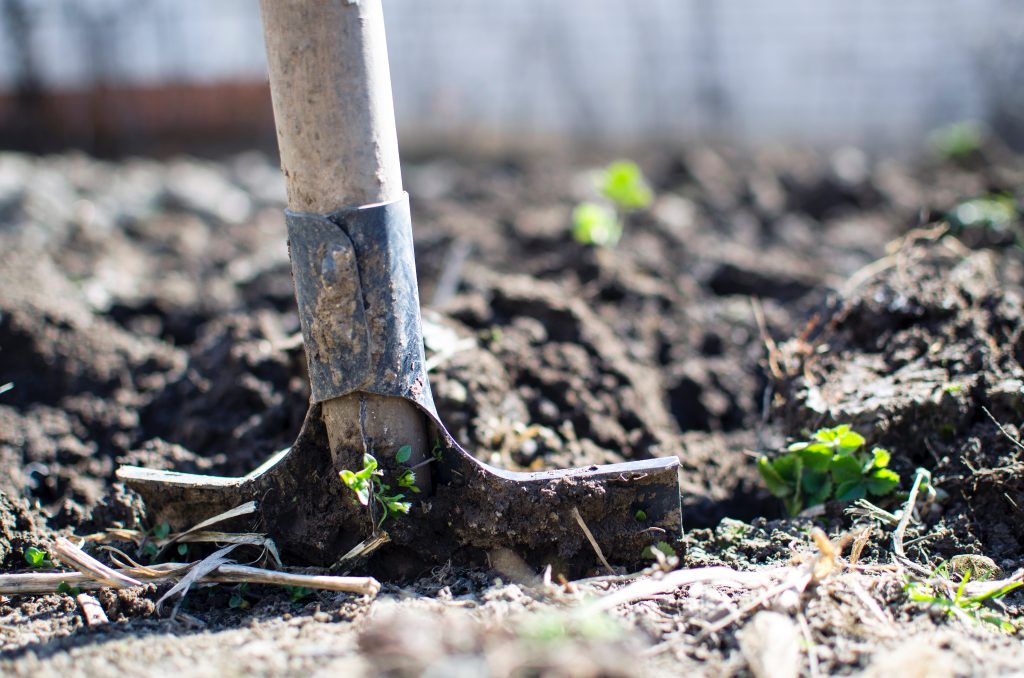This is the first blog post in a series called The Disciple-Making Toolkit. Our vision to see a gospel movement on the North Shore will only become a reality if we saturate the North Shore with transformed disciples who make disciples. The charge to “go and make disciples” (Matt. 28:19-20) is our central task as Christians, and is joyful hard work. In the New Testament, disciple making is often compared to farming, and in this short blog series, we’ll look inside the “farmer’s tool shed” to consider practical tools for how to make disciples.
Read the second blog post here
How Do Disciples Grow?
When we consider the challenge of how to impart our faith into the lives of other believers, it’s tempting to look for a “silver bullet” tool. That “silver bullet” may be a certain structure (small group, micro-group, one-on-one) for example, or a certain curriculum or study, but whatever “silver bullet” tool we may be inclined to look for, it’s important to resist this urge, because disciple-making is a long-term, rugged exercise, and disciples can grow (or not grow!) within a variety of structures, and using a variety of tools.
Realizing this, however, is actually quite liberating, because it frees us up from the paralysis of having to find the perfect model or curriculum. More important to our fruitfulness as disciple makers are the “climate conditions” in which we seek to farm (disciple others). Just as crops grow best under a certain set of “climate conditions”, the same is true of disciples. You could plant a palm tree seed in Alaska, and it simply wouldn’t grow! It needs to be in the tropics. What factors, then, work to create a greenhouse of “climate conditions” ripe for growing disciples?[1]
1) A Large Input of Scripture
Disciples grow when they feast regularly on a healthy diet of God’s word. Scripture itself is likened to a “seed” (Mark 4:3; 1 Pet. 1:23) that bears fruit, or to food essential for our nourishment and growth (Matt. 4:4; Heb. 5:12-14). So, if we want to see growth, it’s important that we regularly sow real seed and help people to regularly eat real meals. This doesn’t mean that we never engage with resources about the Bible—but these “seed substitutes” should drive us to the Bible itself.
2) A Focus on Obedience
A second “climate condition” for growth is a focus on obedience to God’s word—obedience from the heart, yes, and not out of legalism—but obedience nonetheless. This sounds like a no-brainer, yet the reality is that in many contexts, obedience is rarely expected, discussed, encouraged, or followed up on, in a concrete way. We need to create and contribute to an environment where, when we read, for example, Jesus’ command to “cut off our right hand and throw it away, if it causes us to sin” (Matt. 5:30), we’re actually expected and encouraged to do it (while keeping in view how the gospel empowers us in the process)! Without a focus on obedience, we risk mistaking education for transformation, and short circuit the growth God wants to work in us.
3) An Open & Honest Environment
An open and honest environment is a third key “climate condition” for growth. Because growth happens when we apply the grace of Christ, in the gospel, to our deeply rooted idols, fears, and struggles, and because we simply don’t have the wisdom and strength to grow apart from community, it’s necessary for us to be able to share freely and vulnerably with others about our lives. This doesn’t mean that everyone knows every detail of our lives, but it does mean that there must be at least a few people to whom our lives are “open books”.
4) A Missional Orientation
Finally, in order to truly grow, we must be “missional” in our orientation. It’s common to think of mission—our attempt to communicate the gospel in word and deed, in our everyday settings—as either an optional add-on to our discipleship, or as the final step in our discipleship (only when we’re really mature!), but mission needs to be integrated into every aspect of our discipleship. That is, we need to regularly consider how what we’re learning is equipping us to be the type of people who serve others and communicate the gospel to them. If we miss this component, it’s like eating without ever exercising—a recipe for an unhealthy lifestyle!
There are many different settings and arrangements in which we can impart our faith to others, but whatever setting you choose, consider the “climate conditions”!
[1]I learned the “greenhouse” analogy from Greg Ogden’s book, Transforming Discipleship. He uses the term “hothouse” to describe the same concept.

